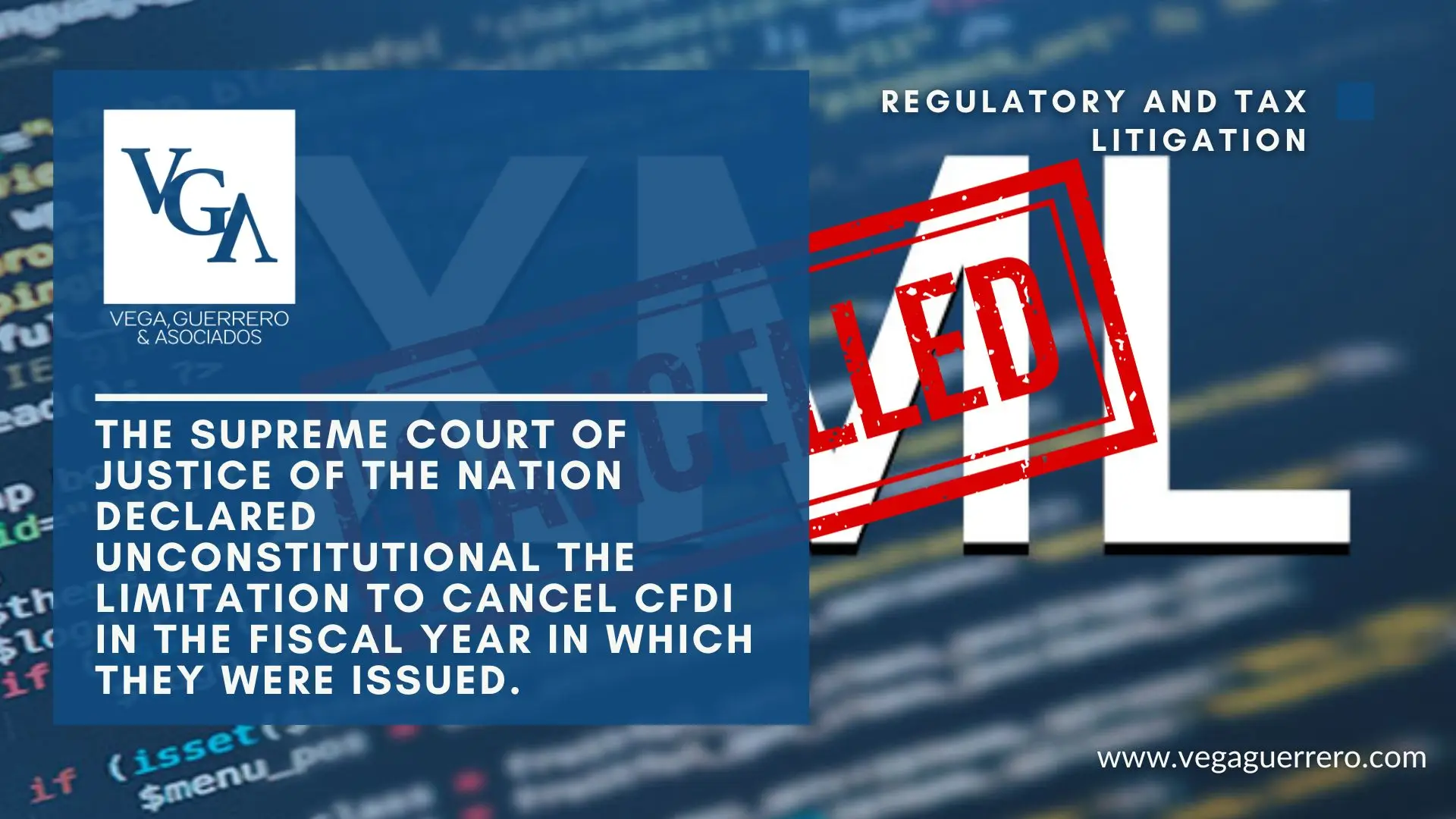In recent days, the Second Chamber of the Supreme Court of Justice of the Nation (hereinafter “SCJN”) declared unconstitutional the restriction that digital tax receipts through the internet (hereinafter “CFDI”) may only be canceled in the fiscal year in which they are issued and provided that the person in favor of whom they are issued accepts their cancellation.
In this sense, in a session held on October 25, 2023, the 5 ministers that makeup said Chamber, unanimously resolved amparo in review 683/2023, in which it was resolved that article 29-A, fourth paragraph of the Federal Tax Code violates the constitutional principle of legal certainty.
In this way, in the version of the sentence it is observed that the SCJN concluded that the legal precept in question causes prejudice to taxpayers, since the effects of the CFDI become relevant after the issuance, precisely, when filing the respective returns and settling the taxes payable by individuals and corporations, which does not necessarily occur within the fiscal year in which they are issued.
Therefore, about the effects of the granting of the amparo, it is specified that the unconstitutionality indicated in this ruling only applies to the provision that establishes that unless the tax provisions provide for a shorter term, the digital tax receipts by the Internet can only be canceled in the fiscal year in which they are issued, so that this limitation will not apply to the plaintiff. However, if there is any other regulatory provision that establishes the term for the cancellation of the CFDIs beyond the fiscal year in which they are issued, it must be complied with.
Given the foregoing, the tax team of Vega, Guerrero & Asociados is at your service to provide you with the corresponding support and advice for compliance with these tax provisions.




